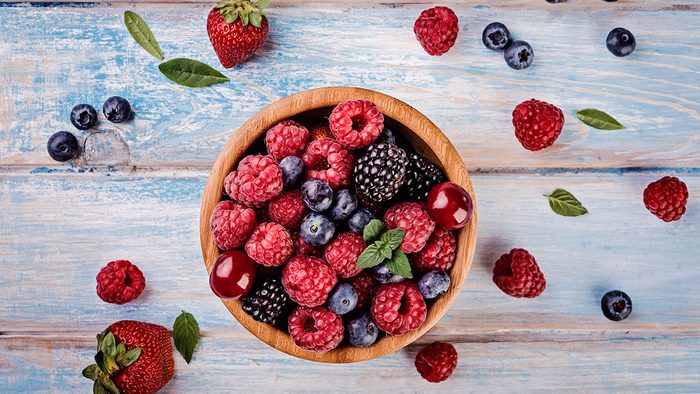
Berries help fight off disease
Berries are some of nature’s best sources of antioxidants, which guard against heart disease, cancer and age-related blindness. Of the berries commonly seen on produce shelves, blueberries contain the most. For even more antioxidant power, seek out elderberries, black currants and chokeberries.
This antioxidant-packed pomegranate & raspberry smoothie is good for you and your skin.
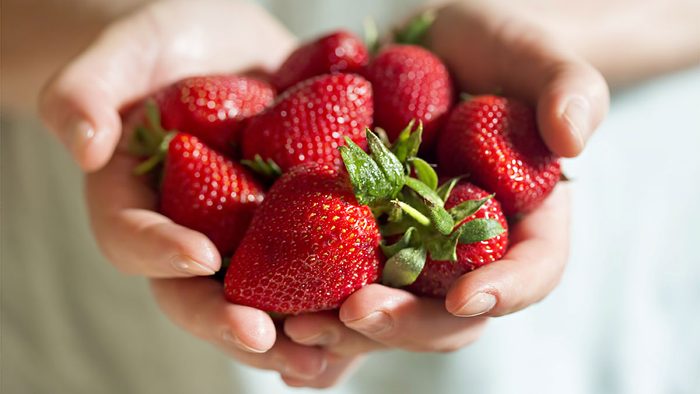
Berries boost vitamin intake
One cup of strawberries contains an entire day’s worth of heart-healthy vitamin C. Studies also show that people who eat one serving of strawberries per day tend to have higher blood levels of the B vitamin folate, which helps keep arteries clear.
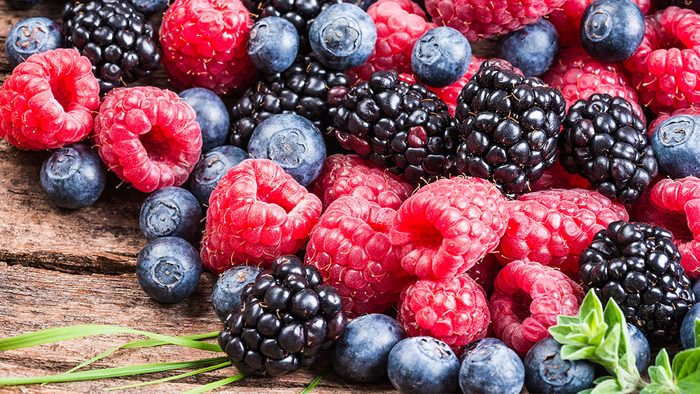
Berries reduce the risk of developing cancer
A U.S. study found that pterostilbene, abundant in blueberries, may help protect against colon cancer (the second most common cancer in women). Both blackberries and raspberries contain ellagic acid, a phytochemical that helps prevent cancer. Cooking doesn’t seem to destroy it, so even jams, pies and crisps may confer this health benefit.
Here’s how your diet can help lower your risk for breast cancer.
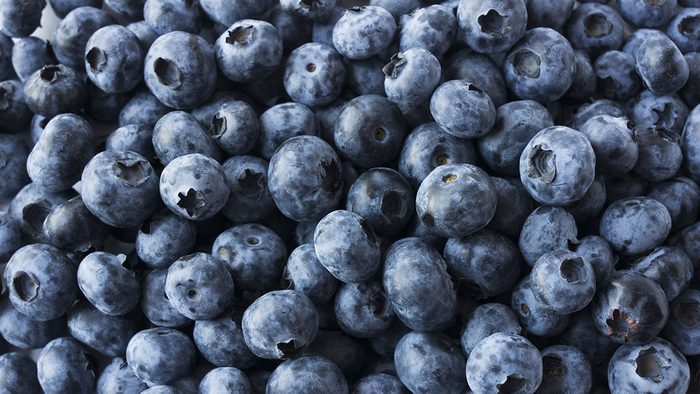
Berries are high in fibre
A half-cup of blueberries contains almost two grams of fibre – about the same amount as a slice of whole-wheat bread. Also high in soluble fibres that help lower cholesterol are blackberries, raspberries and strawberries.
Increase your fibre intake by adding these 5 budget-friendly vegetables to your diet.
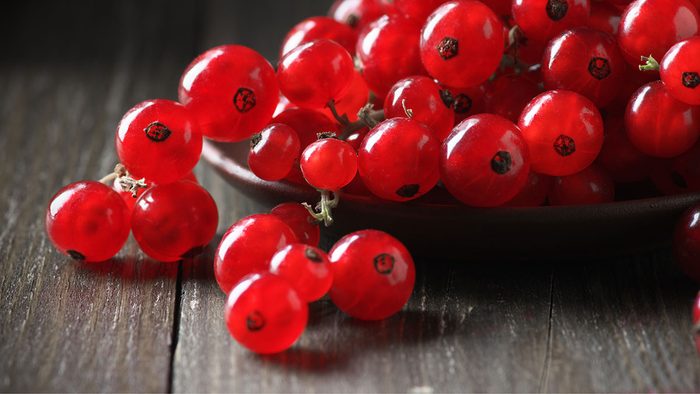
Berries provide a great source of potassium
Red, black and white currants are all excellent sources of potassium, a mineral that helps lower blood pressure. Gooseberries are also a good source – but make sure to look for new varieties that are more palatable for eating raw.
For another great source of potassium, try these easy fig recipes.
